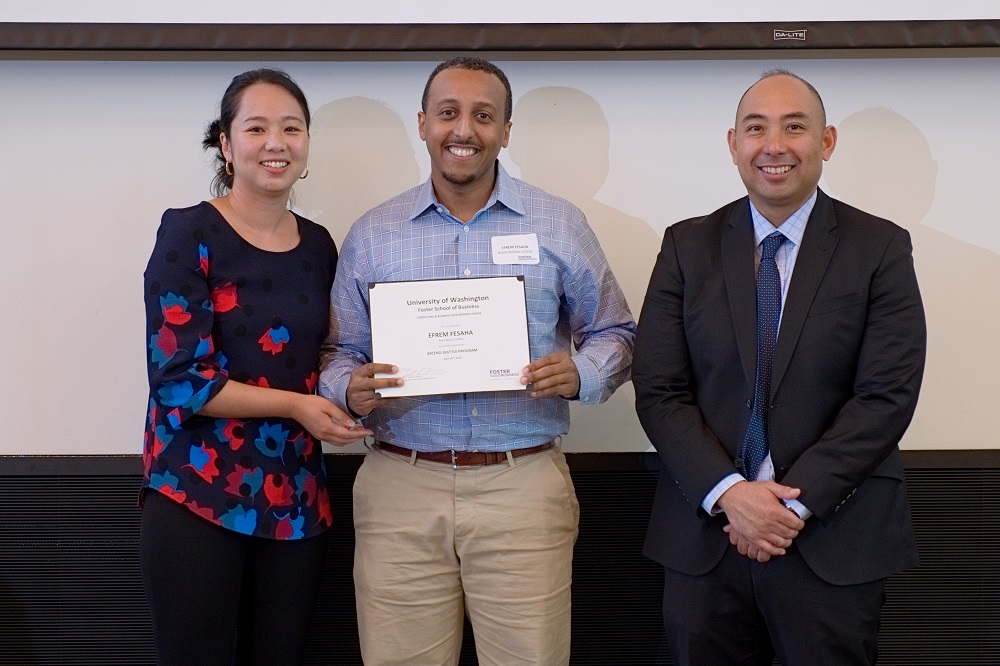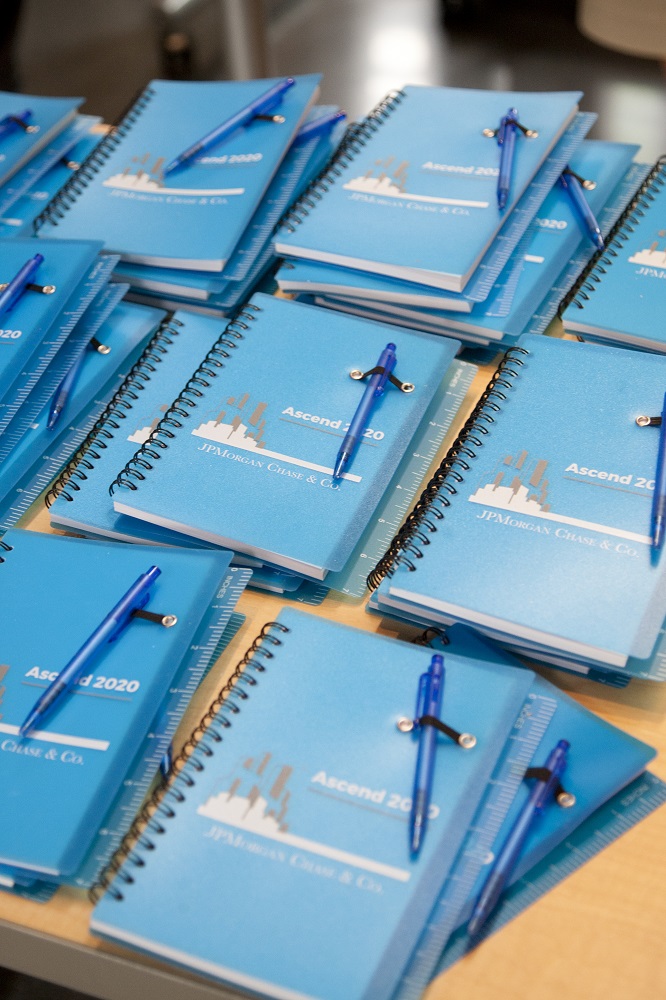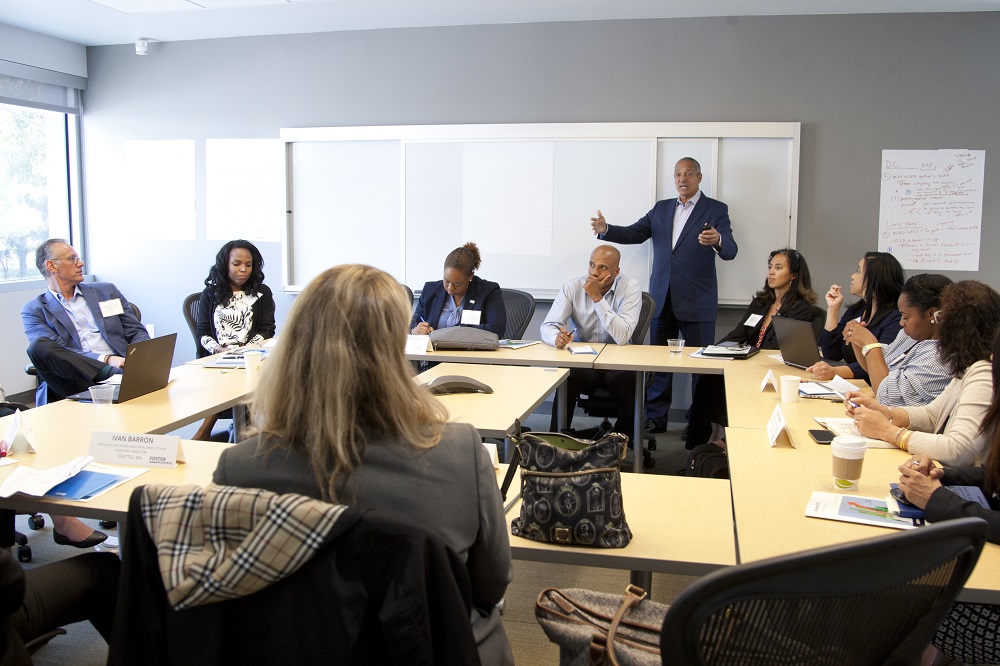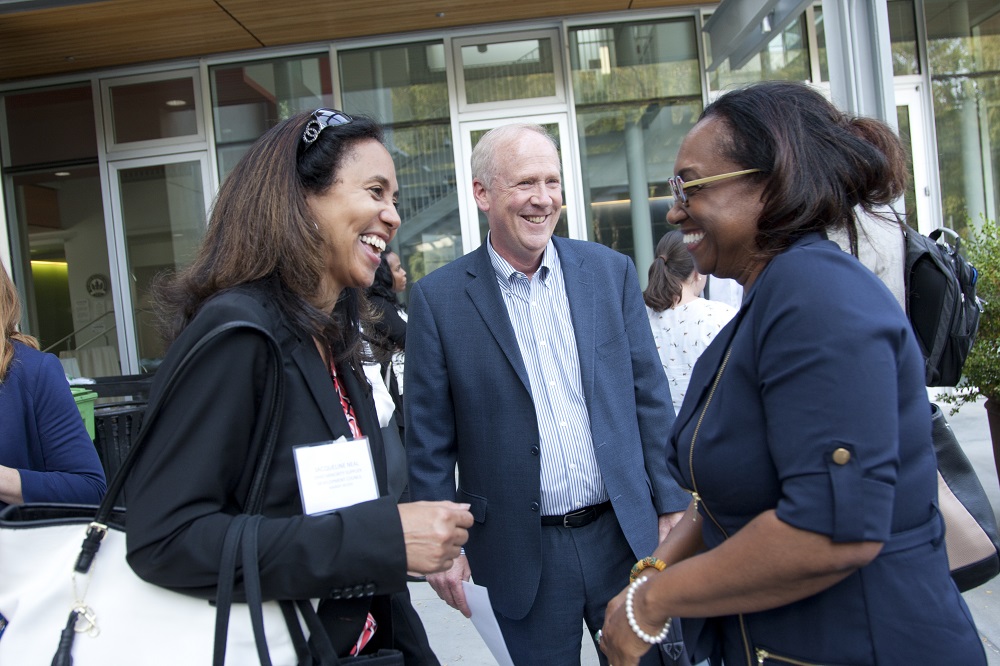Foster Consulting and Business Development Center helps UW earn Carnegie Community Engagement Classification

A graduate of Ascend Seattle, a program of the Foster School’s Consulting and Business Development Center.
The University of Washington has received the Carnegie Community Engagement Classification, an elective designation that indicates institutional commitment to community engagement.
This important classification is awarded following a process of self-study by each institution, which is then assessed by a national review committee led by the Swearer Center for Public Engagement at Brown University, the administrative and research home for the Carnegie Community Engagement Classification.
Receiving this classification puts into focus that the work of a public research university begins at home, in neighborhoods, in the state and in the region.
“UW faculty, students and staff work in partnership with local organizations to address some of the stubbornly persistent problems that impact citizens of our state, such as public health and safety, homelessness, inequities in education and in our communities,” said Ed Taylor, vice provost and dean of Undergraduate Academic Affairs. “Our communities matter.”
The three core entities of the UW’s mission—teaching, research and service—are all equally important and inspire its intention to serve the public good, Taylor added.
Act locally
The assessments across each of the UW’s three campuses identified hundreds of examples of partnerships that embody the definition of community engagement that the Carnegie Foundation puts forth.
One exemplar is the Ascend Seattle initiative of the Consulting and Business Development Center (CBDC) at the Foster School of Business.
Ascend Seattle helps grow businesses owned by people of color, women and veterans, as well as businesses in inner-city communities, by providing access to management education at Foster, growth capital through resources like Craft3, and market opportunities through partners like Seattle City Light, UW Facilities Services and the NW Mountain Minority Supplier Development Council, which has brokered access to large corporate customers including Starbucks, Kroger and Mortensen Construction.
The majority of small businesses in the program are in clean technology, construction, and food and beverage manufacture. And the program has made a big impact. Among innumerable success stories, a small catering company tripled revenue and increased staffing after leveraging Ascend’s introduction to the UW market. A civil engineering firm has grown annual revenues by a factor of 12 and increased its employee roster from 4 to 70 since participating in Ascend Seattle. A retail dropbox company has more than doubled revenue and hires.
The impact doesn’t end locally, either.
“We’ve discovered a model that can begin to close the business performance and wealth gap, and sharing it is the right thing to do,” says Michael Verchot (MBA 1995), the co-founding director of the Consulting and Business Development Center.
Grow nationally
Ascend Seattle is part of the national Ascend network, a partnership of the CBDC and JPMorgan Chase. Ascend builds on the CBDC’s 25 years of work supporting the growth of businesses in underserved communities, resulting in more than $210 million in new revenue and over 200,000 jobs created or retained across Washington state.
 It also draws a mission from the groundbreaking findings of William Bradford, Endowed Professor of Business and Economic Development at Foster. Bradford’s research has demonstrated that minority owned businesses underperform versus white-owned businesses due to systematic gaps in access to management education, money (loans, investment, personal net worth) and markets—the program’s galvanizing Three-M Model.
It also draws a mission from the groundbreaking findings of William Bradford, Endowed Professor of Business and Economic Development at Foster. Bradford’s research has demonstrated that minority owned businesses underperform versus white-owned businesses due to systematic gaps in access to management education, money (loans, investment, personal net worth) and markets—the program’s galvanizing Three-M Model.
Ascend works to close these gaps through local partnerships between business schools, non-profit lenders and B2B market makers focused on spurring business growth in nine cities across the United States.
“The idea that you need to address all three—management skills, money and market access—is simple, but it’s also true that many small businesses don’t have access to them,” says Ted Archer, the executive director of the Small Business Forward program at JPMorgan Chase. “It’s easy to say what’s missing, but difficult to bring those resources together. Ascend is a great vehicle to support the spirit of collaboration between organizations with shared goals.”
Though Ascend has only been around for a few years, participating companies report economic growth of 11-34% and job growth of 12-28% (compared to national averages of 3% economic growth and 1.4% job growth).
Spark community engagement
The Carnegie Community Engagement Classification has been the leading framework for institutional assessment and recognition of community engagement in U.S. higher education for the past 14 years.
The UW is one of 119 institutions classified in 2020 that join the 240 institutions that earned the classification during the 2015 selection process, for a total of 359 campuses who are currently active holders of this important designation.

The Consulting and Business Development Center’s groundbreaking work in Washington state communities is expanding across the nation through the Ascend program.
“Learning with and from our communities is embedded in the UW’s public service mission and a huge part of our faculty and staff’s work and our students’ learning experiences,” said UW President Ana Mari Cauce. “It’s not easy to capture those complex relationships in a ranking or statistic, so the Carnegie application process allows us to reflect on and assess our true impact and honestly evaluate the ways in which community engagement is central to our institutional identity. For our Bothell, Seattle and Tacoma campuses to have earned the classification is a wonderful reflection of who we are.”

